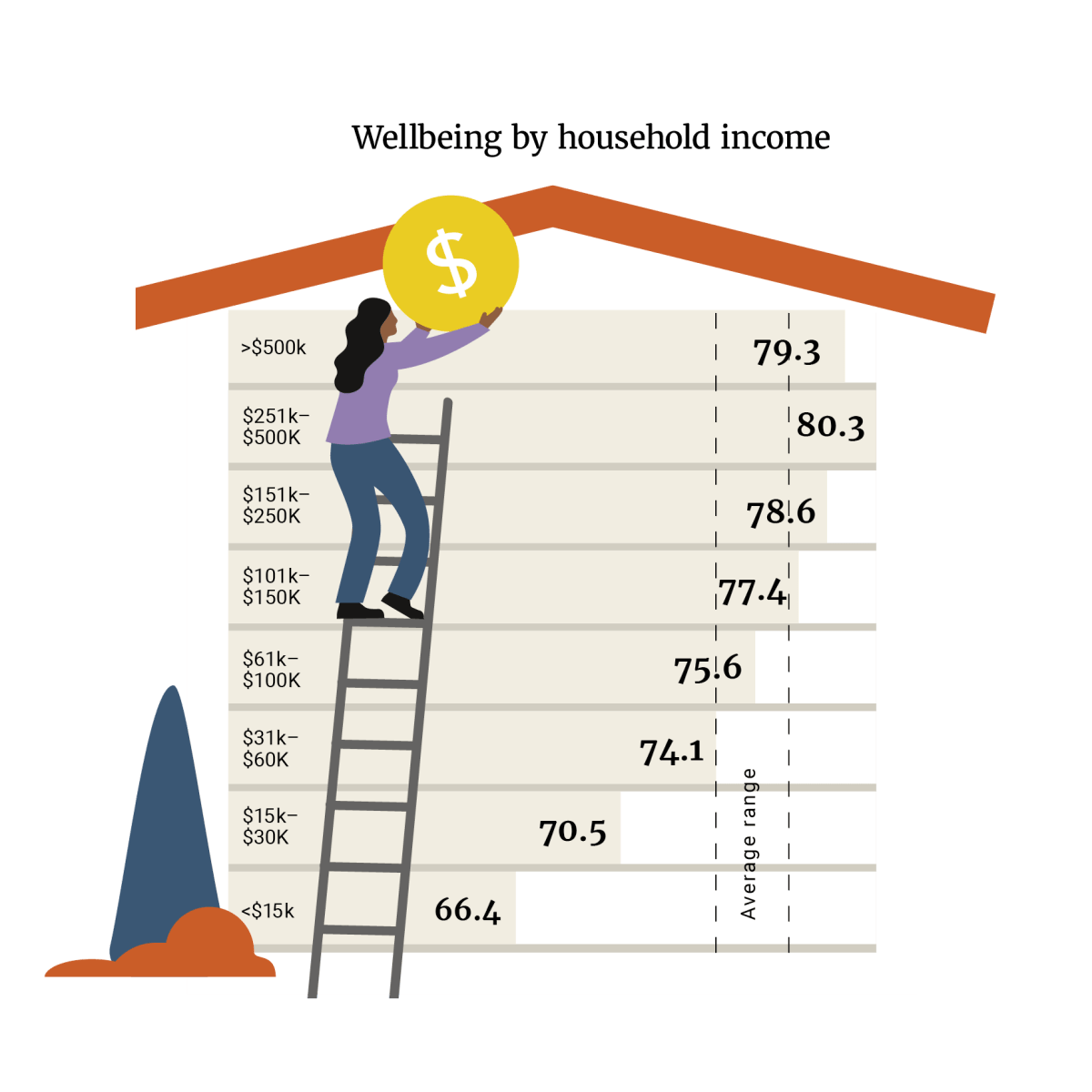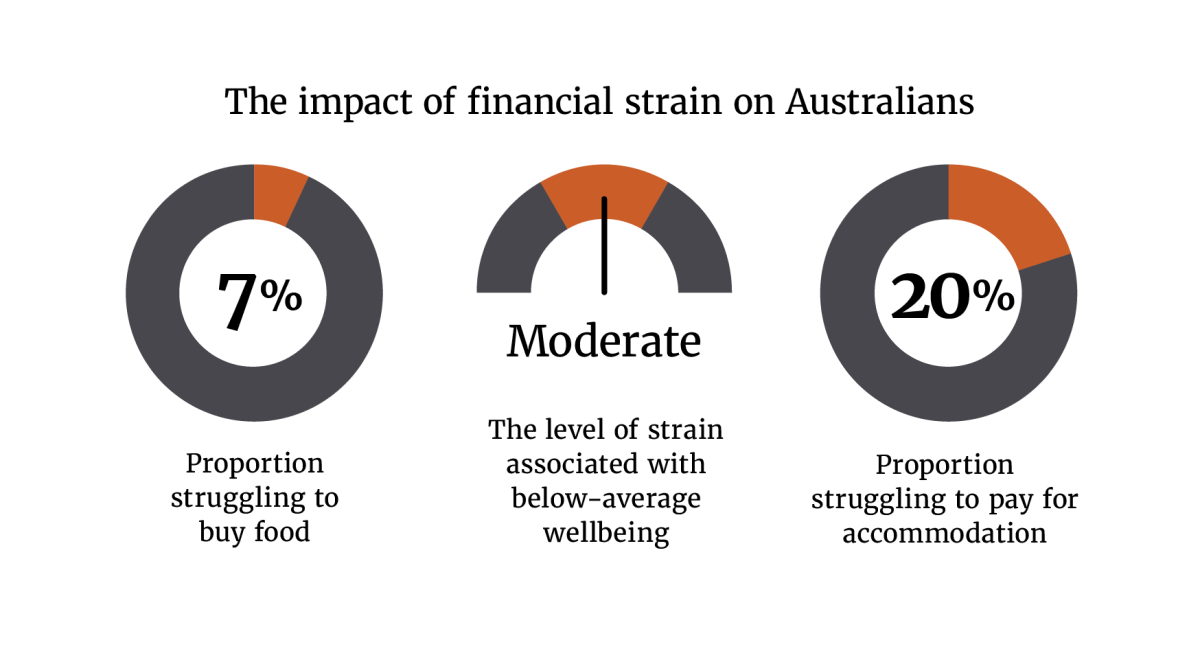“Even if you’ve got financial security and a decent standard of living, if you don’t feel empowered and in control, it can still be very stressful.”—Esther Kerr-Smith, CEO of Wealth and Capital Markets at Australian Unity.
Key points
- Standard of living and overall wellbeing are critical factors in achieving and maintaining Real Wellbeing.
- Money matters to wellbeing, but it matters more to people who have less of it.
- Research shows that greater financial control is associated with higher wellbeing.
Conversations about wellbeing often focus on physical and/or mental health.
But our finances, or standard of living, is a very important factor too—and one of the three pillars of the “golden triangle of happiness”, along with personal relationships and achieving in life.
Esther Kerr-Smith, CEO of Wealth and Capital Markets at Australian Unity, is a big advocate for what she calls the “non-sexy” financial side of wellbeing.
“For most people, it is not about the latest tech start-up, options trading, or a large portfolio of investment properties—although these are interesting and valid things—it is about financial security, standard of living and overall wellbeing which are critical to achieving and maintaining Real Wellbeing.”

Over the past two decades, satisfaction with standard of living has been slowly increasing in Australia, reflecting most people’s comfortable financial situations.
Notably, there has been a slight increase in satisfaction among adults aged between 18 and 45, indicating that we’re better off during our main working years than before.
Money matters to wellbeing, but it matters more to people who have less of it. The Australian Unity Wellbeing Index shows that wellbeing improves in line with household income until it reaches the $101,000 to $150,000 range —at which point the relationship between money and wellbeing weakens.
However, the reverse also holds true, with the research showing that people living on a gross household income of $60,000 or less struggle to reach an average level of wellbeing. Our research shows that even a moderate level of financial strain can cause wellbeing to unravel.
“If you are worried about how you’re going to pay your bills, or how you’re going to fund your retirement, that is a leading indicator of future wellbeing issues in health, standard of living and care,” says Esther.

But it’s not just about how much money you earn—it’s also about how you manage it. Australian Unity Wellbeing Index research has shown that greater financial control is associated with higher wellbeing, while people with low levels of financial control have wellbeing scores below the average range.
“Even if you’ve got financial security and a decent standard of living, if you don’t feel empowered and in control, it can still be stressful,” says Esther.
The upshot? Money matters, but we also need to get the foundations right.
“People do not need to be rich to have financial wellbeing,” says Esther. “They need a reasonable standard of living and, most importantly, they need confidence about their financial affairs being in order enough to support them in the future."
Disclaimer: Information provided in this article is of a general nature. Australian Unity accepts no responsibility for the accuracy of any of the opinions, advice, representations or information contained in this publication. Readers should rely on their own advice and enquiries in making decisions affecting their own health, wellbeing or interest. Interviewee names and titles were accurate at the time of writing.
.jpg)

